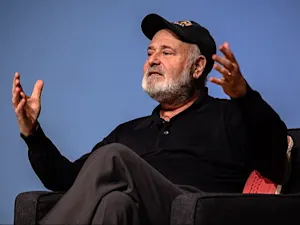
She Spent 40 Years Caring for Him — Then Took His Life
In October 2021, a heartbreaking story unfolded in Middlesbrough, England. Shirley Nunn, a devoted mother and full-time caretaker to her disabled son, Stephen, made an unthinkable decision after learning she had only days to live. Investigators believe she fatally overdosed Stephen before taking the same prescription drugs herself. A recently released Domestic Homicide Review (DHR) sheds light on the series of events leading up to their deaths, revealing missed opportunities to intervene.
A Mother's Worst Fear
For more than 40 years, 67-year-old Shirley Nunn dedicated her life to caring for Stephen, who suffered a life-changing brain injury at age 11. He lived with cerebral palsy, epilepsy, and type 2 diabetes, and he was also undergoing dementia screenings. Despite his challenges, he had a big personality, a sharp sense of humor, and a deep love for music, movies, and fitness.
Then came July 2021. Doctors diagnosed Shirley with stage three lung cancer, and a month later, they told her it had spread to her brain, spine, and pelvis. By October, she knew she had only days left. Palliative care had been arranged for her at home, but instead of focusing on her own decline, she fixated on what would happen to Stephen when she was gone. According to the DHR report, Shirley had devoted her life to caring for her son, always putting his needs first with unwavering love and dedication.
A Fatal Decision
Then the unthinkable happened. On Oct. 24, 2021, just two days after being discharged from the hospital, Shirley overdosed Stephen on prescription medication, then took a fatal dose herself. A family member found them in Stephen's bedroom and called for help, but by the time they reached the hospital, neither could be saved. The timing made the tragedy even more gut-wrenching — it happened on the anniversary of her husband's death, who had passed away from cancer in 2019.
The Missed Red Flags
In the weeks leading up to the tragedy, Shirley's distress became more apparent. The DHR noted that during hospital visits, she had grown increasingly emotional. According to the Gazette Live, the report noted, "She was tearful on two occasions reflecting on her deteriorating health conditions." Despite these warning signs, no agency flagged her as a suicide risk, and her psychological needs never received the same urgency as her physical condition.
The review found no indication she had ever harmed Stephen before or planned to do so. However, professionals underestimated the emotional toll Shirley's diagnosis took on her. The DHR concluded that greater effort should have been made to help Shirley navigate tough discussions about her emotions and the support she believed Stephen would need. Her mental well-being should have received the same attention as her physical health.

A Life Worth Remembering
Stephen was more than a man in need of care — he was a beloved son, a jokester, and a fitness enthusiast. He loved Elvis, action movies, and working out at the gym. Mencap, the charity that had worked with him for years, shared that Stephen had a remarkable sense of humor and "became known within his care team for speaking his mind regardless of the occasion often with amazing comedic timing," as reported by the Gazette Live.
His untimely death wasn't just a loss for his family but for an entire community that knew and loved him.
What Happens Next?
In the wake of the tragedy, the review panel made several recommendations to prevent similar cases. Authorities now stress the need for mental health screenings for terminally ill patients and more proactive planning for dependents left behind. Middlesbrough officials say they have already begun implementing changes to improve support for families in crisis.
Shirley Nunn didn't just fear her own death — she feared what would happen to the son she had spent her life protecting. Her story serves as a devastating reminder that mental health care must be as much of a priority as physical treatment, especially for caregivers facing the unimaginable.
If you or someone you know needs mental health help, text "STRENGTH" to the Crisis Text Line at 741-741 to be connected to a certified crisis counselor.
References: Caretaker Mother Was Diagnosed With Terminal Cancer. She Then Fatally Overdosed Herself and Her Son | Heartbreaking case of mother who killed herself and disabled son after terminal cancer diagnosis























